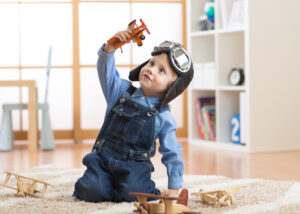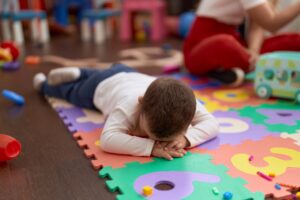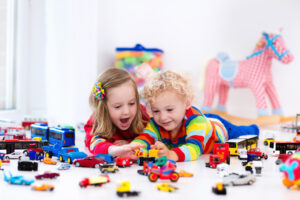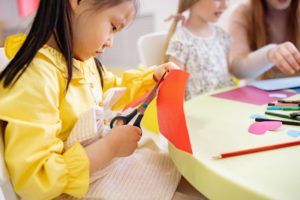Social & Emotional Skills for Kindy

The transition into kindergarten is an exciting and important time for young children. For children, this period marks significant social-emotional growth.
It’s a time when children begin to better understand and regulate their emotions, form relationships, and navigate social situations more independently.
Understanding what this development looks like can help support children as they prepare for the school environment. Through this blog we will explore the building blocks that make up social-emotional development.
Recognising and Expressing Emotions
At this stage, children start recognising basic emotions. By the age of 4, children can label their feelings by saying things like, “I’m happy” or “I’m sad” and begin to show more empathy towards others. For example, they might comfort a friend who is upset. However, emotional regulation is still developing, and children at this age often need help managing big feelings like frustration or sadness.
Understanding Other’s Emotions
At this age, kids also begin to understand that others have feelings too. They might show concern for a friend who is upset or share a toy to make someone feel better. While they’re still learning to manage their responses, these early signs of empathy are important for building positive social relationships. Of course, conflicts around sharing or taking turns are common at this age, and children often need adult support to help them navigate these situations.
Developing Self-Control
By the time children enter kindergarten, they may be able to follow simple instructions like waiting for their turn or following classroom routines. While they may manage some transitions better, emotional regulation is still a skill that requires practice, and children often need help navigating frustration or when things don’t go as expected (co-regulation). As children become more independent, they are also learning how to separate from parents with less distress.
Social Play and Cooperation
Social play takes a leap during these years. Children who were previously playing alongside each other (parallel play) begin engaging more cooperatively, sharing toys, and negotiating with their peers. For example, they might work together to build a tower or pretend to be characters in a shared game. However, disputes over toys or space are still frequent, and children often need support to learn how to share and take turns.
This social development is crucial as children prepare for kindergarten, where they will need to interact and collaborate with peers on a daily basis. These early experiences with play and cooperation lay the foundation for positive social relationships in the learning environment.
Imaginative Play and Emotional Expression
Imaginative play also takes off between the ages of 3 and 4. Children often pretend to be characters, acting out different scenarios with toys or friends. This type of play helps children experiment with emotions and express them in different and safe ways. For instance, they may pretend to be a doctor comforting a sick patient or act out a situation where a character feels sad. Through these activities, they explore different emotions and learn to understand how feelings influence actions.
Developing a Sense of Self
At this age, children begin developing a clearer sense of identity. They refer to themselves by name and take pride in their accomplishments. They also begin expressing preferences, such as choosing favourite toys, activities, or friends. This growing sense of self is a critical part of their emotional development and lays the groundwork for how they interact with others. By the time they enter kindergarten, children are starting to explore their social roles more deeply, including understanding basic gender roles or family expectations .
For our little ones entering kindergarten, social-emotional development is a time of rapid growth.
Children are learning to understand and manage their emotions, form relationships with others, and navigate the social world with greater independence. They may still need support to regulate their feelings and respond to social situations appropriately, but they are making key strides toward building the emotional resilience and social skills they will need for school and beyond.
These early milestones in social-emotional development lay the foundation for school readiness, emotional well-being, and the ability to form meaningful relationships in the future.
If you have any concerns with your child’s social emotional development, or you would like some more information, please do not hesitate to get in touch with our Occupational Therapists via [email protected] or call us in the clinic on (07) 32654495.

Written by Helena Manicaros, 2024 (Occupational Therapist)
References:
Bierman, K. L., Nix, R. L., Greenberg, M. T., Blair, C. B., & Domitrovich, C. E. (2020).
The effects of a social-emotional intervention on the emotional development of preschool children. Journal of Applied Developmental Psychology, 68, 101123. https://doi.org/10.1016/j.appdev.2020.101123
Denham, S. A., & Burton, R. (2020).
Social-emotional learning in early childhood: A review of the literature and programs. Early Childhood Research Quarterly, 51, 49-62. https://doi.org/10.1016/j.ecresq.2020.03.001
Zinsser, K. M., Denham, S. A., & Curby, T. W. (2018).
Social-emotional development and school readiness in early childhood: The role of teachers in fostering children’s social and emotional skills. Early Childhood Research Quarterly, 43, 76-87. https://doi.org/10.1016/j.ecresq.2018.01.005
